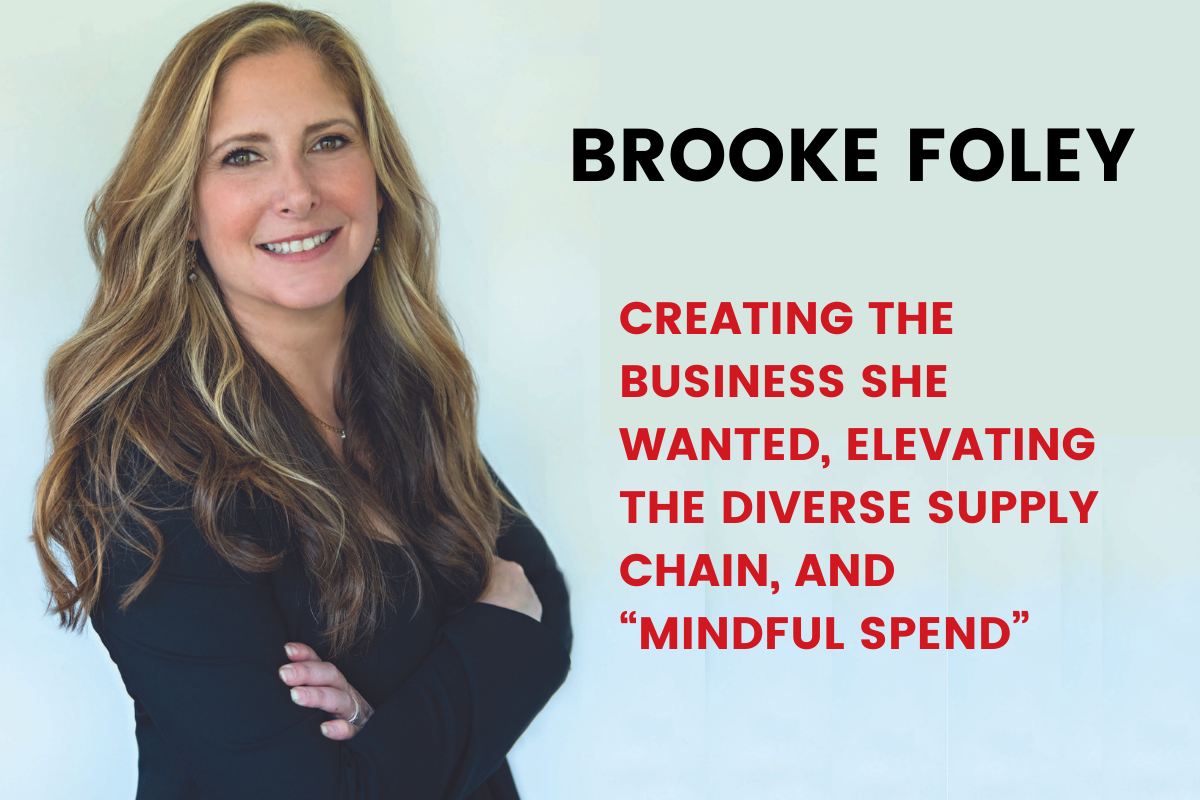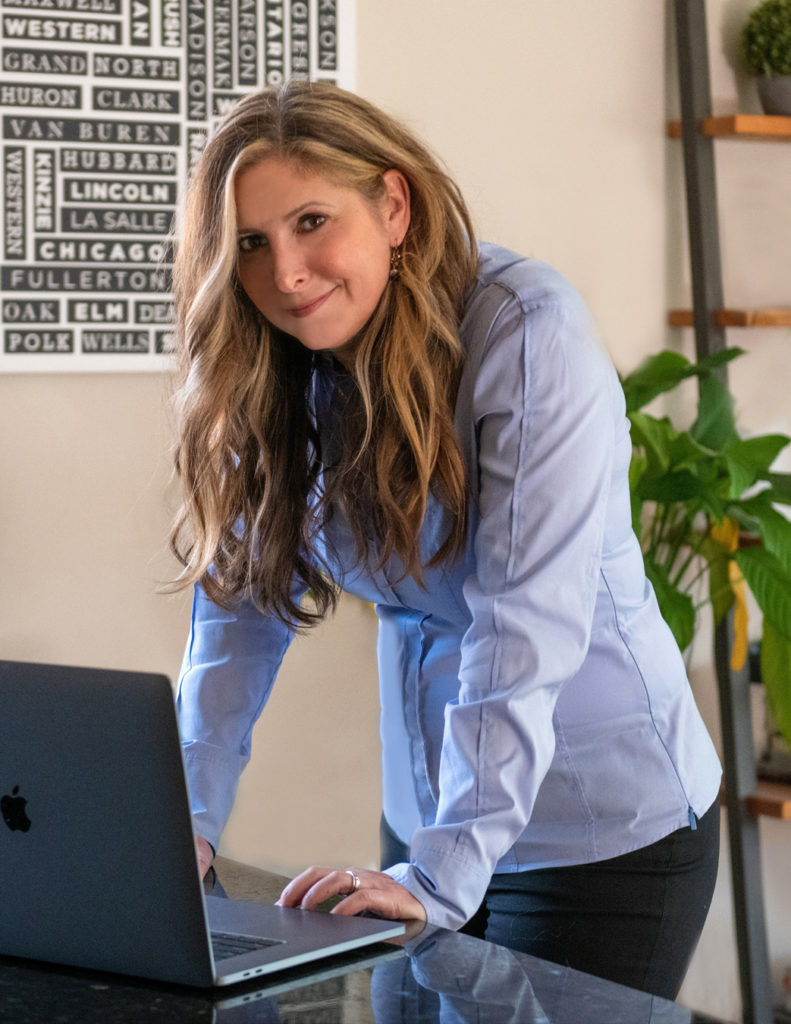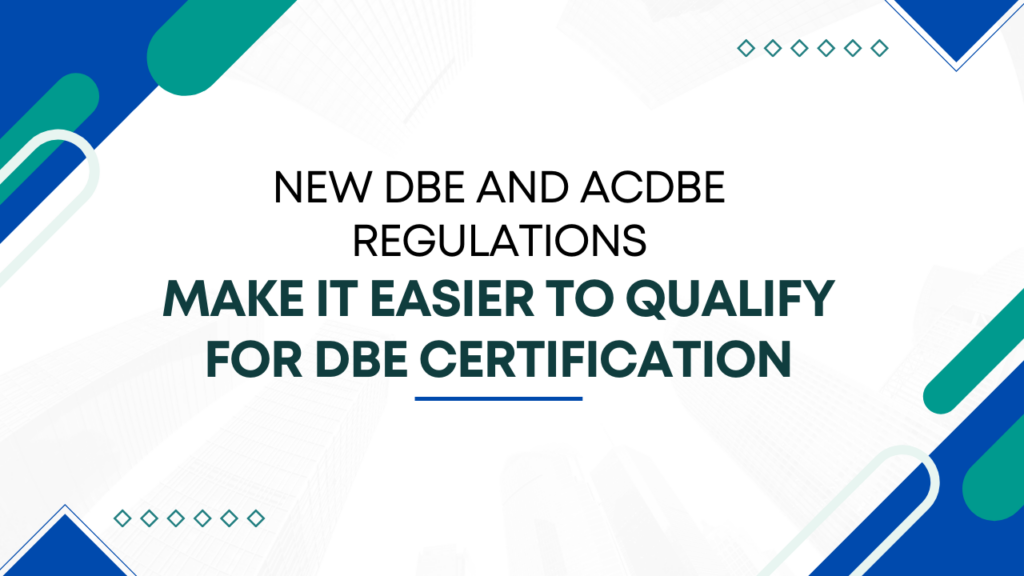
After attending the WBENC/IBM/ Tuck Women’s Executive Program at Dartmouth, Brooke Foley knew she needed to make changes to her business. Before she left for Tuck, she recognized that she no longer related to her highly successful advertising agency. After five years, millions of dollars in billings, and several government contracts, the business was running her, not the other way around. And it was going to keep growing like that. So, Foley decided to shake things up in a very unconventional way.
“I came back, and I looked at my team and said, ‘In a matter of six to eight weeks, only one third of you will still be here.’ I restated our values and shared a transformative vision for the business, which instigated whether people saw themselves in the business or not. I figured, people who knew they didn’t map to the values were going to exit, and people that were sure were going to drive them out,” Foley recalls. It was bold. And clear.
Foley’s Tuck experience helped her understand how to create the business she wanted, how to really leverage her strategic and creative achievements, beyond just “growing” the business. This led to that consequential decision to empower her employees, change the office dynamics but also shift the company’s core clientele.
Jayne Agency, is a strategic/creative firm that is known for helping businesses align for growth through brand clarity across strategy, storytelling, and research and insight development. And, for the past five years, the company has gained a reputation for its relentless commitment to and expertise in marketing for diverse businesses, and helping enterprises hire diverse businesses in “smartly strategic, wickedly creative, response-driven” ways.
“I changed the business from being about anyone who showed up and asked us to do the work for them, to say that our time is really important to elevating the diverse supply chain. Serving diverse, certified businesses was my passion, and elevating the enterprise awareness was a means to help improve that. I realized that my passion for making impacts intersected with the other WBEs [women’s business enterprises] and MBEs [minority business enterprises] that were around me naturally,” she says.
Through Jayne’s engagements with MWBEs, Foley observed that many of them that invested in previous marketing efforts were often disappointed with the results, whether it was a website, logo design, or a search engine optimization campaign. Jayne Agency listened to their concerns and began conducting thousands of hours of diverse supply chain research that enabled the company to develop an additional set of considerations for the marketing methodology it was known for.
The research yielded that each race, gender, and/or ethnicity ingests and processes guidance and advice around marketing differently so the process, marketing strategy, and investment approach must match that particular nuance. “People are layered. They’re coming from layers and layers and layers of equity spoken about as inequality, that are just not being recognized and leveraged. [Marketers] don’t have that introspection, they may KNOW and SEE, differences” yet don’t have that life experience, or insight to elevate those differences into leverage for the businesses and it’s owners—and their lifestyles, cultures and dreams. It’s about hearing to understand, then empowering, not scoping projects.”
Based on the research findings, Foley and company created a white paper, titled The Mindful Spend, and a subsequent workshop that elevates the conversation around the intersectionality of diverse businesses, supplier diversity professionals, and procurement in order to increase diverse spend.
“We started thinking and talking in terms of mindful spend, what works for the position and promise of the diverse business, what works for the position and promise of the hiring entity. And it was that juxtaposition in the middle, that cross section, that creates the mindful match. We realized there are ways that you can educate on both sides of the buy-sell, that creates the runway for the true economic justice,” she says.
Regarding justice, Foley observed that the social justice protests in the summer of 2020 exposed the predatory nature of marketing. During that time, Jayne Agency received several inquiries from businesses wanting assistance with their social and racial justice campaigns. However, Foley noted that many of them were either making promises that they couldn’t keep, or they were not sincere. She believes that genuine, effective, and long-term social and economic justice begins with a company’s supply chain strategy, which is directly related to brand position and promise. Many did have the right intention and ability to take action, and Jayne Agency worked with a select group of those to craft supplier diversity messaging into an enterprise wide platform and cultural change, not just a spend level.

“It’s about looking at your supply chain, looking at your values, your code of conduct, your hiring policies, your payment terms, and saying, ‘How do we hire more diverse suppliers on a sustainable basis, so that we can appropriately shift the economic wealth in this country, legitimately, for the long term in the long haul.’ When you do that, you’re creating the ability for healthcare. You’re creating the ability for greater mental wellness. You’re creating the ability for job creation. You’re creating longer term commitments for people to be able to go to and stay in college. You’re actually driving racial and economic justice within communities. You effect multiple jobs at once.”
Foley acknowledges that many companies haven’t reached that level of awareness, commitment, or agility yet. Supply chain commitments are real, embedded, and at times, the idea of introducing new suppliers (any new supplier) is counter to the security of the brand position, promise or embedded operations. There’s still a difficult road ahead to truly understand where solutions to incorporating more diverse suppliers really lie. It takes strategy, patience, creativity and tenacity on both sides. For those diverse suppliers who are actively working to become a part of a company’s supply chain, she advises them to focus on securing contracts that allow them to grow, create additional capacity for the long term, and address their core competency, which reinforces the value of their position and promise. Practice protecting your company and resources by saying “No, but thank you” for all the right reasons.
“It’s not about being emotional about the topic. It’s about making decisions to make impact. It’s about knowing ‘[the company] is not the right fit for me and my company so I’m not going to spend my resources talking to you.’ And that comes from what’s inherently inside of your own personal brand, and the DNA of your brand itself. If I could gather all of the most talented diverse CEOs in my arms and hug them, the one thing I’d whisper is, ‘You’re so worth it, you need to know your worth. Because it all stems from that.’”












